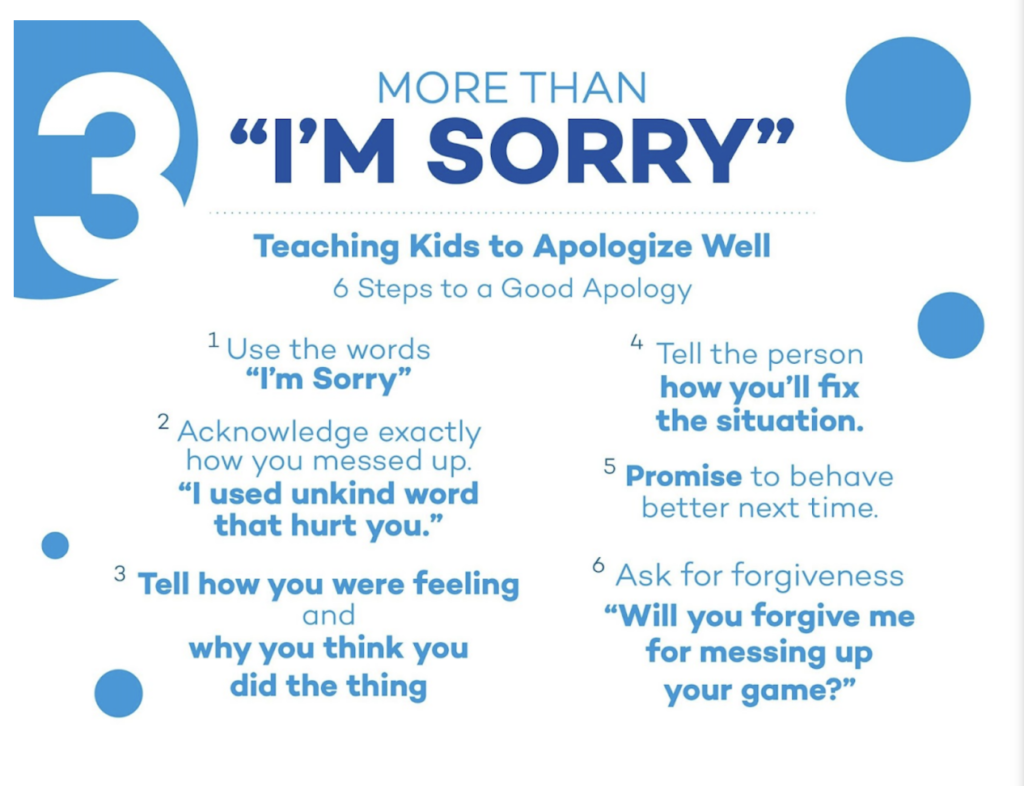Apologizing Well
Because all of us make mistakes in our relationships, an important friendship skill is learning how to apologize sincerely and effectively. Apologizing well when we hurt a friend with our words or actions is a skill we’re working on growing this summer at GAC.
In just about every conflict, the disagreement or issue is never ALL one person’s fault. Usually both people did or said something that hurt the other person. With campers, we brainstorm examples of conflicts they get into with friends – often minor things like disputes over card games or using an item that belongs to someone else without asking. Sometimes, we unintentionally hurt a friend.
Apologizing well includes owning up to mistakes and apologizing for words or actions that hurt another person. A sincere and thoughtful apology is the most effective way to resolve conflicts with friends & family members.
Conflicts are a normal part of all relationships, so we are normalizing for campers that all of us – at times – need to apologize to our friends. These are the simple steps to making a meaningful apology when we’ve done or said something we regret or that has hurt our friend.
6 Steps to a Good Apology
-
Use the words, “I’m sorry.”
-
Acknowledge exactly how you messed up.
“I used unkind words that hurt your feelings.”
-
Tell how you were feeling and why you think you did the thing.
“I was feeling jealous of how well you did at wake boarding, so I made an unkind comment.”
-
Tell the person how you’ll fix the situation.
“I’d like to share some things that I really admire about you so that you understand how much I like you. And I’m going to take a breath before I make impulsive comments.”
-
Promise to behave better next time.
“I’m going to do my best to not blurt out unkind things. If I mess up, I want you to tell me.”
-
Ask for forgiveness.
“Will you forgive me for messing up your card game?”

Resources/Related
